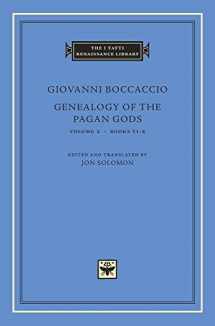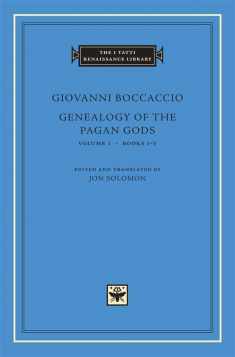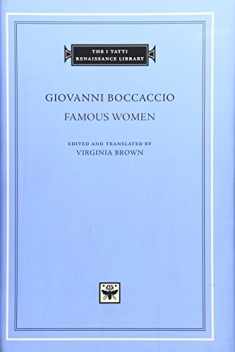
Genealogy of the Pagan Gods, Volume 2: Books VI–X (The I Tatti Renaissance Library)
ISBN-13:
9780674975590
ISBN-10:
0674975596
Edition:
1
Author:
Giovanni Boccaccio
Publication date:
2017
Publisher:
Harvard University Press
Format:
Hardcover
720 pages
FREE US shipping
Book details
ISBN-13:
9780674975590
ISBN-10:
0674975596
Edition:
1
Author:
Giovanni Boccaccio
Publication date:
2017
Publisher:
Harvard University Press
Format:
Hardcover
720 pages
Summary
Genealogy of the Pagan Gods, Volume 2: Books VI–X (The I Tatti Renaissance Library) (ISBN-13: 9780674975590 and ISBN-10: 0674975596), written by authors
Giovanni Boccaccio, was published by Harvard University Press in 2017.
With an overall rating of 4.0 stars, it's a notable title among other
books. You can easily purchase or rent Genealogy of the Pagan Gods, Volume 2: Books VI–X (The I Tatti Renaissance Library) (Hardcover) from BooksRun,
along with many other new and used
books
and textbooks.
And, if you're looking to sell your copy, our current buyback offer is $2.19.
Description
Genealogy of the Pagan Gods by Giovanni Boccaccio (1313–1375) is an ambitious work of humanistic scholarship whose goal is to plunder ancient and medieval literary sources so as to create a massive synthesis of Greek and Roman mythology. The work also contains a famous defense of the value of studying ancient pagan poetry in a Christian world.The complete work in fifteen books contains a meticulously organized genealogical tree identifying approximately 950 Greco-Roman mythological figures. The scope is enormous: 723 chapters include over a thousand citations from 200 Greek, Roman, medieval, and Trecento authors. Throughout the Genealogy, Boccaccio deploys an array of allegorical, historical, and philological critiques of the ancient myths and their iconography.Much more than a mere compilation of pagan myths, the Genealogy incorporates hundreds of excerpts from and comments on ancient poetry, illustrative of the new spirit of philological and cultural inquiry emerging in the early Renaissance. It is at once the most ambitious work of literary scholarship of the early Renaissance and a demonstration to contemporaries of the moral and cultural value of studying ancient poetry.


We would LOVE it if you could help us and other readers by reviewing the book
Book review

Congratulations! We have received your book review.
{user}
{createdAt}
by {truncated_author}




